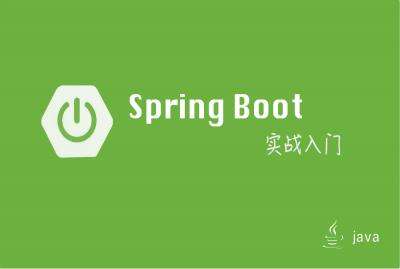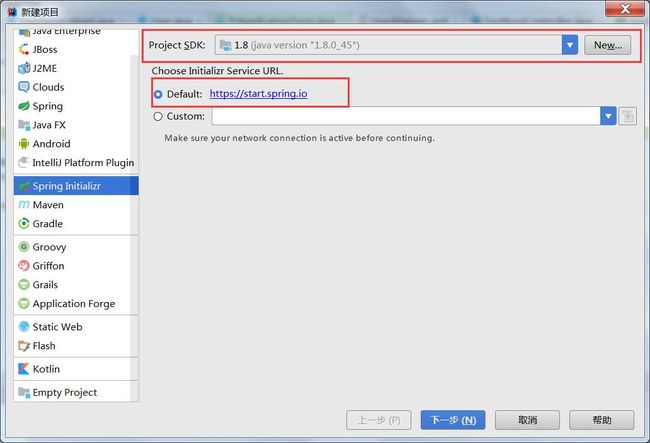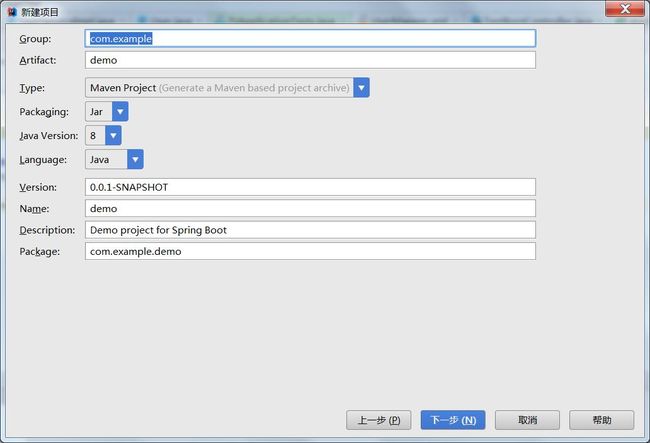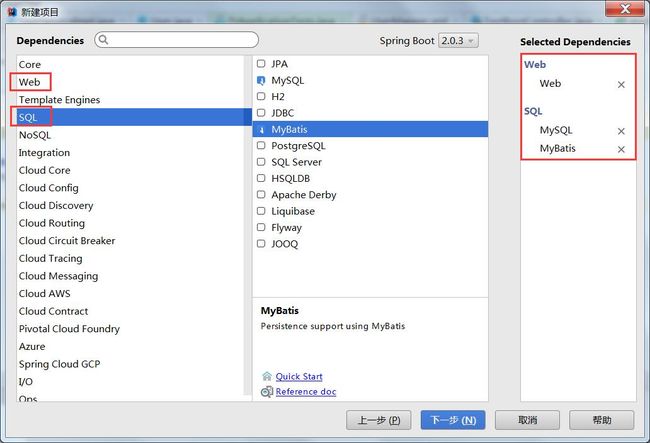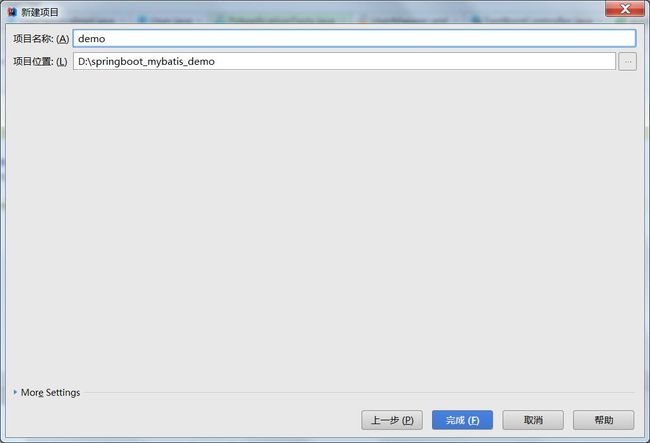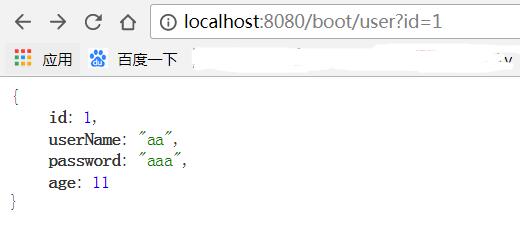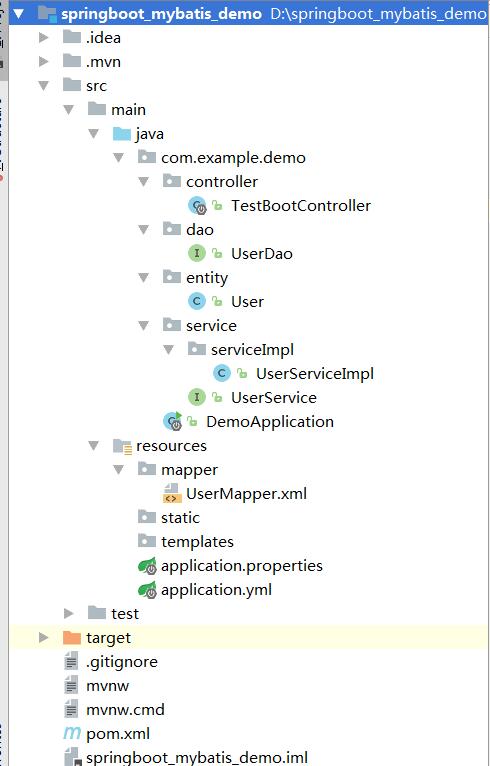Spring boot + Mybatis 整合
Spring boot+Mybatis,相对于原来的Spring+SpringMVC+Mybatis简单好多
一、java web开发环境搭建
参考教程:https://www.jianshu.com/p/39dec5a0ab55
二、Spring boot搭建
1、Intellij idea菜单栏File->new->project
2、选择左侧栏中spring initializr,右侧选择jdk版本,以及默认的Service URL,点击next。
3、然后填写项目的Group、Artifact等信息,helloworld阶段选默认就可以了,点击next。
4、左侧点击Web选择web,SQL选择Mybatis、MYSQL(数据库用的是mysql,大家可以选择其他DB),点击next。
5、填写Project name 等信息,然后点击Finish。
6、一个maven web项目就创建好了,目录结构如下:
Spring boot就搭建好了,pom.xml里已经有了Spring boot的jar包,包括我们的mysql数据连接的jar包。Spring boot内置了类似tomcat这样的中间件,所以,只要运行DemoApplication中的main方法就可以启动项目了。
在src/main/java下新建目录com/demo/entity/User
package com.example.demo.entity;
public class User {
private String name;
public String getName() {
return name;
}
public void setName(String name) {
this.name = name;
}
}
相同demo目录下新建controller/TestBootController
package com.example.demo.controller;
import com.example.demo.entity.User;
import org.springframework.boot.autoconfigure.EnableAutoConfiguration;
import org.springframework.web.bind.annotation.RequestMapping;
import org.springframework.web.bind.annotation.RestController;
@RestController
@EnableAutoConfiguration
@RequestMapping("/boot")
public class TestBootController {
@RequestMapping("/user")
public User getUser(){
User user = new User();
user.setName("boot_test");
return user;
}
}
Spring boot启动默认是要加载数据源的,所以我们在src/main/resources下新建application.yml
数据库使用的是mysql。可根据自己的需求更换数据库
#默认使用配置
spring:
profiles:
active: dev
#公共配置与profiles选择无关
mybatis:
typeAliasesPackage: com.example.demo.entity
mapperLocations: classpath:mapper/*.xml
--- #分隔线不能少
#开发配置
spring:
profiles: dev
datasource:
url: jdbc:mysql://localhost:3306/test #数据库地址+数据库名字(自定义)
username: root #帐号(自定义)
password: root #密码(自定义)
driver-class-name: com.mysql.jdbc.Driver #驱动
将pom.xml中加载数据源的jar包先注释掉也可以。
/*
org.mybatis.spring.boot
mybatis-spring-boot-starter
1.3.0
*/
最终结构springboot目录如下
启动DemoApplication的main方法,访问http://localhost:8080/boot/user即可
ps:如果自定义了包名等~复制代码请注意修改对应包名
三、整合Mybatis
1、集成druid,使用连接池。pom.xml中添加:
com.alibaba
druid
1.1.0
最终的pom.xml文件:
4.0.0
com.example
demo
0.0.1-SNAPSHOT
jar
demo
Demo project for Spring Boot
org.springframework.boot
spring-boot-starter-parent
2.0.3.RELEASE
UTF-8
UTF-8
1.8
org.springframework.boot
spring-boot-starter-web
org.mybatis.spring.boot
mybatis-spring-boot-starter
1.3.2
mysql
mysql-connector-java
runtime
org.springframework.boot
spring-boot-starter-test
test
com.alibaba
druid
1.1.0
org.springframework.boot
spring-boot-maven-plugin
到此Spring boot 就完成整合了~ 可以运行测试下能否顺利运行。
2.用MyBatis Generator自动生成代码,或者自定义编写各层
最终目录请看文章最后
public class User {
private Integer id;
private String userName;
private String password;
private Integer age;
//省略get set方法...
}
public interface UserDao {
int insertSelective(User record);
User selectByPrimaryKey(Integer id);
}
UserMapper.xml 中注意替换成自己的User对象地址 type 和parameterType
id, user_name, password, age
insert into user_t
id,
user_name,
password,
age,
#{id,jdbcType=INTEGER},
#{userName,jdbcType=VARCHAR},
#{password,jdbcType=VARCHAR},
#{age,jdbcType=INTEGER},
3.修改DemoApplication.java,添加扫描dao层接口。
import org.mybatis.spring.annotation.MapperScan;
import org.springframework.boot.SpringApplication;
import org.springframework.boot.autoconfigure.SpringBootApplication;
@SpringBootApplication
@MapperScan("com.example.demo.dao") //修改成自己的dao地址
public class DemoApplication {
public static void main(String[] args) {
SpringApplication.run(DemoApplication.class, args);
}
}
4.添加Service/impl 和Controller层
public interface UserService {
public User getUserById(int userId);
boolean addUser(User record);
}
@Service("userService")
public class UserServiceImpl implements UserService {
@Resource
private UserDao userDao;
@Override
public User getUserById(int userId) {
return userDao.selectByPrimaryKey(userId);
}
@Override
public boolean addUser(User record) {
boolean result = false;
try {
userDao.insertSelective(record);
result = true;
} catch (Exception e) {
e.printStackTrace();
}
return result;
}
}
@RestController
@EnableAutoConfiguration
@RequestMapping("/boot")
public class TestBootController {
@Resource
private UserService userService;
@RequestMapping("/user")
@ResponseBody
public User getUser(HttpServletRequest request, Model model){
int userId = Integer.parseInt(request.getParameter("id"));
User user = this.userService.getUserById(userId);
return user;
}
}
5.Mysql创建测试表和插入数据
DROP TABLE IF EXISTS `user_t`;
CREATE TABLE `user_t` (
`id` int(11) NOT NULL DEFAULT '0',
`user_name` varchar(255) DEFAULT NULL,
`password` varchar(255) DEFAULT NULL,
`age` int(255) NOT NULL,
PRIMARY KEY (`id`)
) ENGINE=InnoDB DEFAULT CHARSET=utf8;
-- ----------------------------
-- Records of user_t
-- ----------------------------
INSERT INTO `user_t` VALUES ('0', 'bb', 'bb', '11');
INSERT INTO `user_t` VALUES ('1', 'aa', 'aaa', '11');
6.浏览器访问http://localhost:8080/boot/user?id=1
7.最终项目结构图
